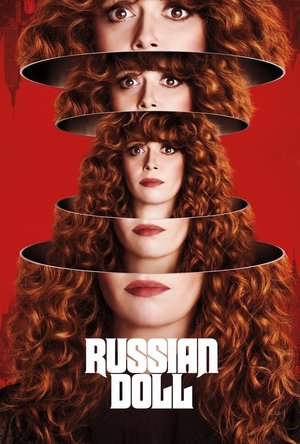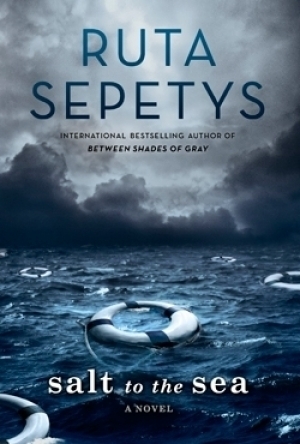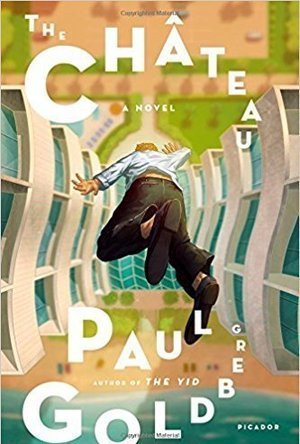
The Château
Book
It is January 2017 and Bill has hit rock bottom. Yesterday, he was William M. Katzenelenbogen,...
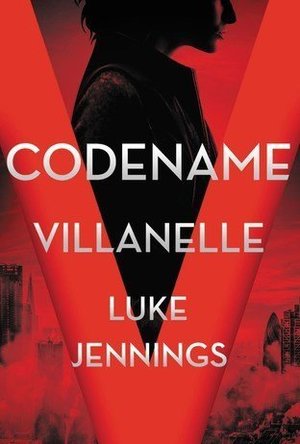
Codename Villanelle (Killing Eve #1)
Book
Villanelle (a codename, of course) is one of the world's most skilled assassins. A catlike...

Way Off Plan (Firsts and Forever, #1)
Book
Jamie Nolan is a young cop on his first undercover assignment, sent to investigate Dmitri Teplov, a...
lgbtq gay romance mm romance
Hazel (2934 KP) rated We Fly Beneath the Stars [Audiobook] in Books
Dec 4, 2022
The book follows the lives of Nadia and Tasha, sisters who join the Russian Airforce during World War II and who become fighter pilots in the much-feared by the Germans and all-female squadron known as "The Night Witches."
Given inferior equipment and less training than their male counterparts as well as having to put up with their harassment all whilst trying to stay alive and get back safely following their night sorties over the advancing German army; this is a story of tremendous bravery however it also a tale of sibling rivalry, love, loss and choices.
The narrator, Lauryn Allman, was excellent; her voice totally immersed me into the story; one of the best I have come across so far and my thanks to Bookouture and NetGalley for enabling me to listen to and share my thoughts of We Fly Beneath the Stars.
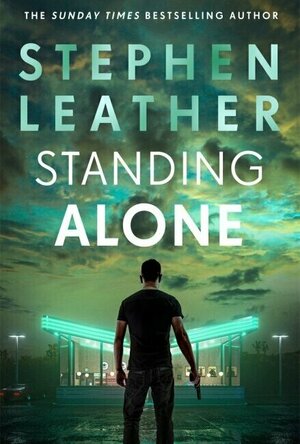
Standing Alone (Matt Standing #2)
Book
How can you follow orders if those orders are to kill a friend? A Navy SEAL has gone rogue,...
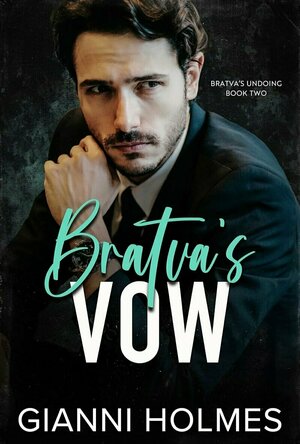
Bratva's Vow (Bratva's Undoing #2)
Book
Monsters don’t let go of the ones they love. They'll hunt you. They'll abduct you. They'll chain...
Contemporary Russian Mafia MM Dark Romance
Daniel Boyd (1066 KP) rated Russian Doll in TV
Feb 5, 2019 (Updated Feb 5, 2019)
I had no clue what to expect going into this one. I was a fan of Natasha Lyonne from her role in Orange Is The New Black and had heard that she had co-wrote this project and even had a hand in directing it. This peaked my curiosity enough to give it a shot, and I'm glad that I did because, (although it is only February,) this is my favourite show of this year so far.
There is of course the presence of the obvious 'Groundhog Day,' trope, but thankfully the show uses this mechanic to it's benefit and manages to tell a fairly unique story based on a pretty unoriginal story-telling device. The show was co-written by Lyonne, Amy Poehler and Leslye Headland and the writing is brilliant. The show is comedic in all of the right places while managing to achieve and maintain a more serious tone when it wants to for certain moments, especially towards the end of the series.
Consisting of eight episodes all around 30 minutes in duration, the series moves at an extremely brisk pace and it is a pace that matches the quick dialogue and editing style that the series adopts during many of the death montage sequences. This all gels together to ensure that the show never feels stagnant or dragging in any sense. The score and cinematography are also great and compliment the other aspects of the show very nicely. All of this together is what gives this show it's unique, quirky feel.
Though, none of this would work without having a reliable lead protagonist to tie the whole thing together and Natasha Lyonne pulls off this difficult task flawlessly. I have always enjoyed seeing Lyonne pop up in several projects as a solid supporting actress, but this is the first time that I have seen her in the lead role and she is phenomenal through the entire eight episodes that Russian Doll consists of. Match that with the writing and directing credits that she claims on this series and you realise that we are watching an artist with incredible talent getting to realise her vision through this project and it is a joy to witness the whole thing unfold.
Overall, Russian Doll is a fantastic series that is enjoyable from start to finish. It features brilliant writing, fantastic performances and plenty of laughs. Due to the oddball nature and tone of this wonderful series, I am not sure if I want to see a second season. However, I am very much looking forward to seeing wherever Lyonne goes from here and what she plans to do next, both as an actress and as an auteur.
Hazel (1853 KP) rated Salt to the Sea in Books
Dec 17, 2018
“We survivors are not the true witnesses. The true witnesses, those in possession of the unspeakable truth, are the drowned, the dead, the disappeared.” </i>– Primo Levi
World War Two has got to be the most well known and talked about period of history. Despite it not even being a century ago, it is already taught in schools around the globe. However a lot of events are omitted from our history books. A lot of people, including those alive at the time, have no idea of some of the situations Europeans found themselves in. Ruta Sepetys, despite having only previously written two novels, has become known for her stories about the lesser-known aspects of the Second World War. Her third book, <i>Salt to the Sea</i>, is no different.
In 1945 things were not looking great for the people living in Germany. Their greatest concern was the invading Russian army, resulting in thousands of Germans evacuating their hometowns. Four characters in their late teens/early twenties narrate <i>Salt to the Sea</i>: Joana, Florian, Emilia and Alfred. Their varied nationalities – Lithuanian, Prussian, Polish and German – help provide a range of opinions about the war, but regardless of who they believe to be the enemy, whether it be German or Russian or both, they are all figuratively in the same boat.
Joana, Emilia and Florian meet each other amongst a group of refugees trekking to freedom. A lot of trust is involved especially as no one is willing to reveal his or her true story. It is clear that each character is hiding something personal, something to do with the war, yet they all rely on and help each other to continue on their journey.
Naturally, being a war story there is masses of death and destruction. Set in January, the weather conditions are just as dangerous as the Russian soldiers. It is the end of the novel that contains the most shocking of events: a sinking of a ship that kills 9000 passengers. The most severe maritime disaster ever, yet it is doubtful that readers already know about it.
Despite being a work of fiction, Sepetys sticks to the facts in her heavily researched novel. She shocks the reader with the severity of the situation, and may even bring some to tears with the outcome. She has not sugar coated anything. Some storytellers save the innocents from harm, but this was not the case in <i>Salt to the Sea</i>. In war, no one can choose who lives and who dies. Millions of innocent people perish.
The short chapters keep the story flowing quickly. It is shocking, gripping and engaging. There is a brief notion of romance but this is not focused on and thus does not detract from the factual storyline. There was a hinted connection between characters in this novel and those in <i>Between Shades of Grey </i>– one of Sepetys’ earlier novels, however this is not a sequel or part of a series.
With the help of maps showing the difference between Europe now and Europe in 1945,<i> Salt to the Sea</i> is highly educational. Although aimed at young adults it is suitable for older generations as well. Whilst containing shocking content, you are certain to fall in love with Sepetys’ writing.
Gareth von Kallenbach (980 KP) rated Hunter Killer (2018) in Movies
Jul 2, 2019
That’s not to say that this movie isn’t entertaining. Gerard Butler appears alongside a surprisingly well stocked cast including Academy award winner Gary Oldman, Emmy winner Michael Nyqvist, Common and Linda Cardellini to create a gripping experience that is high action and suspense throughout the entire film. But where it excels in action it falls short in story and character development.
The action begins right off the bat; and within 5 minutes of the opening credits two submarines are destroyed and the world is on the brink of World War 3. Commander Joe Glass (Butler), despite never having captained a submarine before, is field promoted into command of the USS Arkansas, considered a Hunter Killer submarine, and sent to investigate the missing subs. During the course of his investigation, he discovers that not all is what it seems. Meanwhile, Rear Admiral John Fisk (Common) and NSA Agent Jayne Norquist (Cardellini) are at the Pentagon with some issues of their own. Using a Navy Seal recon team, they’ve discovered that a Russian military coup is in progress and the only way to prevent a war is to rescue the captive Russian president. In the end, all three teams need to work together in order to steer the two countries away from being driven into a nuclear confrontation by a rogue Russian defense minister
To its credit, this movie is what it is. Pure, driven action with few breaks and absolutely no subplots or side stories. Despite there being three main teams within the film (the submarine, the recon team and the Pentagon team) all three are focused on the same objective and there is very little deviation from their respective missions. There’s no accompanying love story or unshown historical conflict between two characters. There’s not even much in terms of character development beyond the typical “old crew learns to trust new and unproven leader”. This is as close to a pure action movie as you’re going to get. Every single line, scene and character is used to further an explosion in some way or another.
This is the first big project for director Donovan Marsh who, prior to this, hasn’t had anything close to this quality of cast or this kind of budget. Hunter Killer has actually been tossed around the studios for a number of years with other notable directors including Tony Scott (Crimson Tide) and Antoine Fuqua (Training Day) previously attached to the script. While it would have been exciting to see what either of those two could have done with this film, Marsh does manage to keep things alive by maintaining that constant stream of action and suspense. Unfortunately, he doesn’t seem to be able to elevate the picture above that basic level. Despite an all-star cast who performed excellently, the movie remains essentially one-dimensional.
If you’re looking for a tense (Crimson Tide), intelligent (Hunt for Red October) submarine movie that looks a little more like a political thriller and a little less like an advertisement for the Navy, then this movie is not for you. However, if you’re in need of a bit more action and a lot less subtext, then Hunter Killer makes for a great night out full of explosions, amusing jokes and better acting than the dialogue really deserved.

HelloTalk Language Exchange
Education and Social Networking
App
HelloTalk, the 1st global language and culture exchange community, connects you with native speakers...
![We Fly Beneath the Stars [Audiobook]](/uploads/profile_image/802/80aa1332-831c-401a-87dd-f91c5a08d802.jpg?m=1670160938)
